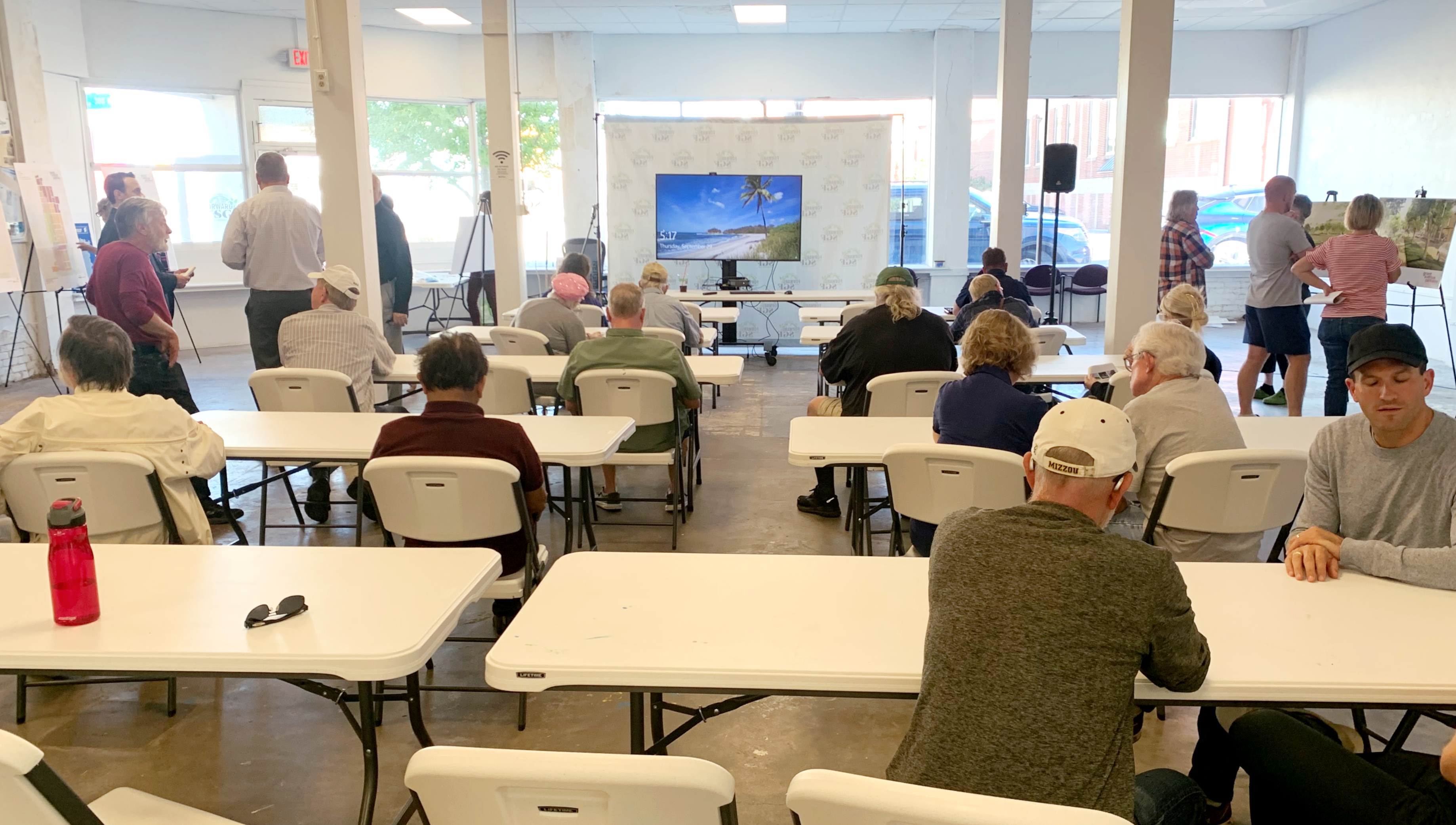Property owners in the area surrounding what will become Grant Avenue Parkway are being offered incentives to spruce up their places.
Springfield Senior City Planner Matt Schaefer spoke to a group of about 30 people who own houses or buildings in the project zone from Grant Avenue Parkway. They met Sept. 29, at the Forward SGF building on Boonville Avenue. The meeting space had some building materials and painting supplies pushed to one side of the room to make way for tables, chairs and maps. The building is under development, much like the neighborhood around Grant Avenue.
Schaefer explained to the property owners that the success of the $25.9 million Grant Avenue Parkway hinges just as much on their effort as it does in the Springfield City government’s effort to rethink the key north-south street.
“Success along this corridor will really depend on private investment as well as public investment,” Schaefer said.
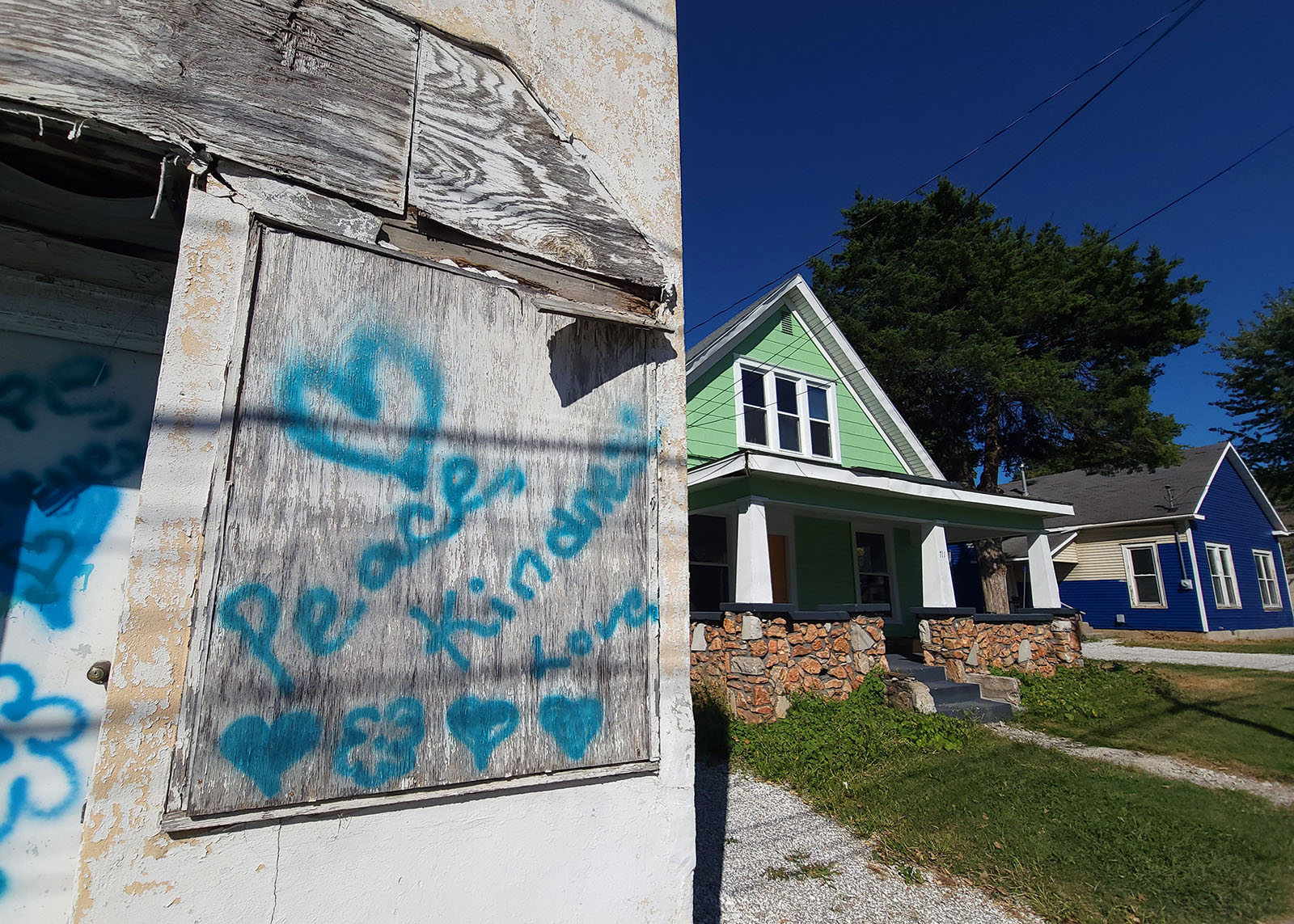
The incentives come in the form of tax abatements for those who own existing property — if they so choose to make certain improvements. The goal, according to planners, is to “lift up the neighborhood,” keeping existing tenants in place and improving development possibilities around them.
Why care?
If it goes through, the Grant Avenue Parkway project will use $25 million to turn part of Grant Avenue into a district designed to attract visitors, inspire development and growth and encourage outdoor recreation.
The Grant Avenue Parkway project is a plan to create an off-street pedestrian and bicycle pathway along Grant Avenue from Sunshine Street to College Street in downtown Springfield. The south hub of the project area is the Wonders of Wildlife National Museum and Aquarium on Sunshine Street off of Campbell Avenue. The northern hub is the IDEA Commons at Mill Street with a proposed center city loop around part of downtown Springfield.
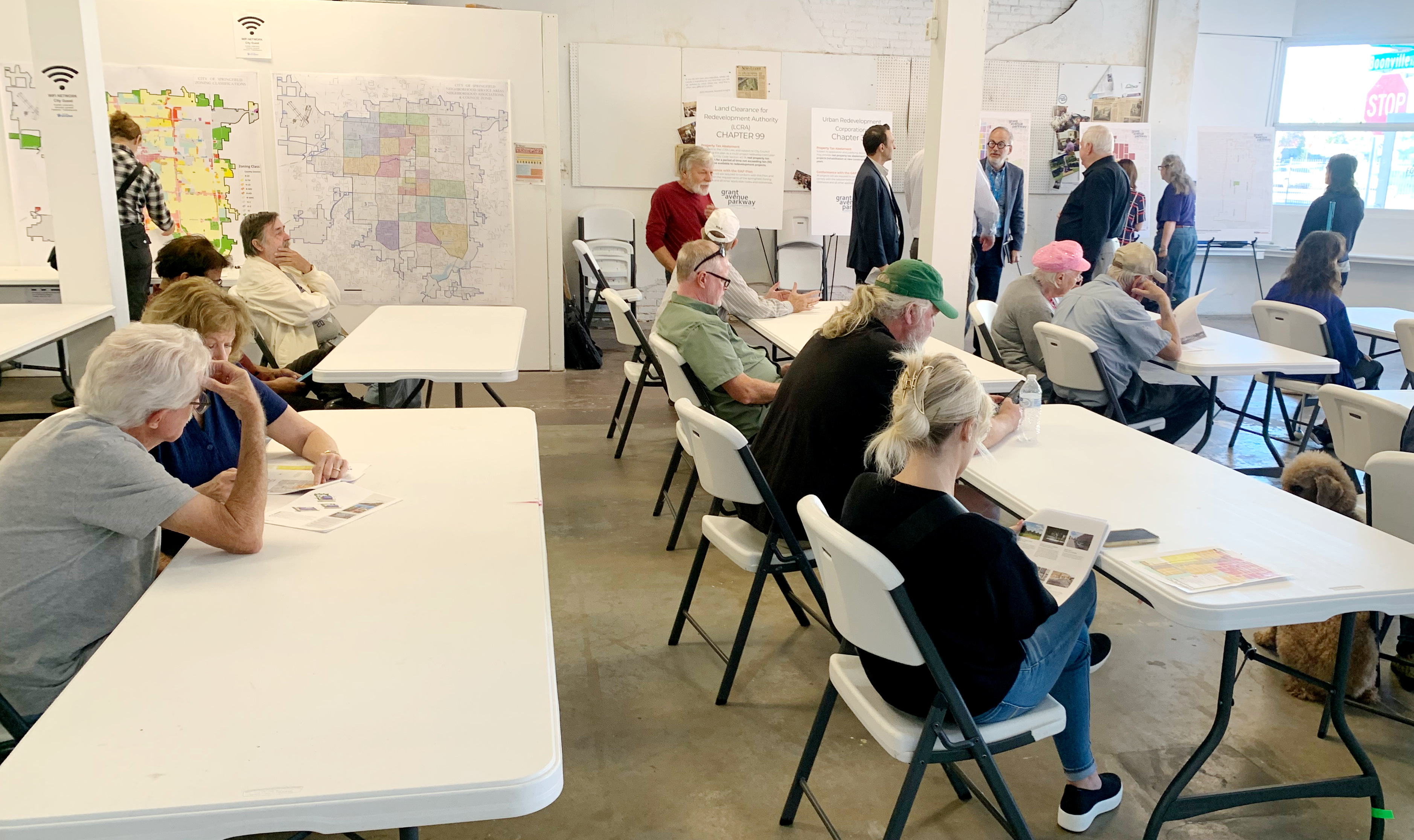
The city of Springfield is required to kick in about $5 million to meet a 20-percent match requirement on a $20.9 million grant to fund construction of the Grant Avenue Parkway. The federal grant is through a program called Better Utilizing Investments to Leverage Development (BUILD).
“This is really meant to implement a lot of the planning efforts that have been done to date in this area, as well as to leverage the investments that are being made along the parkway,” Schaefer said.
Staffers from the Springfield Department of Economic Vitality have worked with consultants from PGAV Planners to draft the Grant Avenue Parkway (GAP) Plan, a document that will be used to guide development and growth along three miles of Grant Avenue.
The Grant Avenue Parkway Redevelopment plan with tax abatement incentives goes before the Springfield Land Clearance Redevelopment Authority Oct. 4, the Springfield Planning and Zoning Commission on Oct. 6, the Springfield City Council for a public hearing Oct. 31, and the City Council for an up or down vote on Nov. 14.
What is blight? What are the incentives?
In the spring of 2022, the consultants performed a qualifications analysis, or a blight study to determine that land and property is disadvantaged.
Missouri law defines a “blighted area” as an area that, “by reason of the predominance of unsanitary or unsafe conditions, deterioration of site improvements, or the existence of conditions which endanger life or property by fire and other causes, or any combination of such factors, (hinders) the provision of housing accommodations or constitutes an economic or social liability or a menace to the public health, safety or welfare in its present condition and use.”
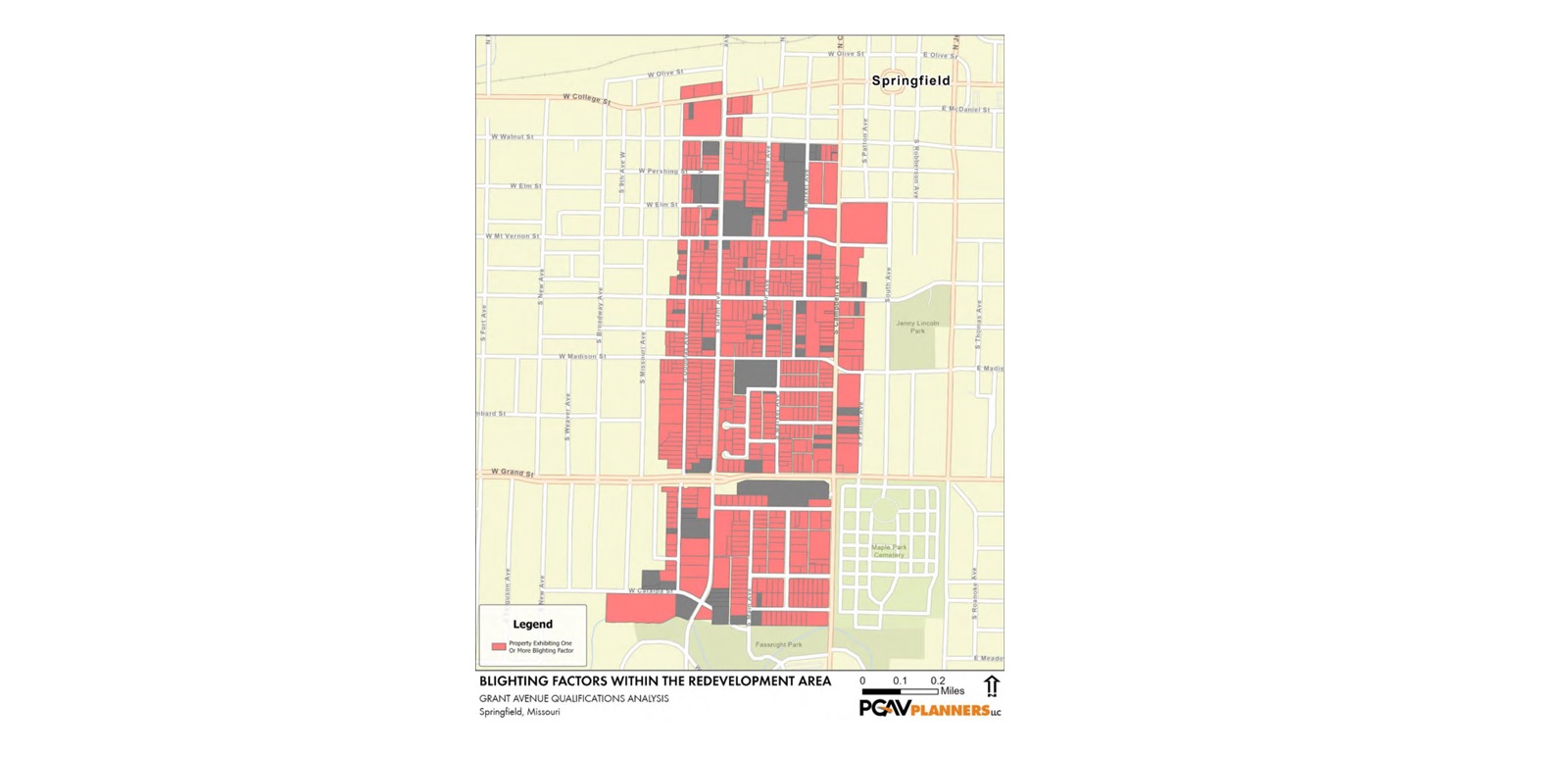
Consultants from a St. Louis-based firm, PGAV Planners, helped to author the Grant Avenue Parkway Redevelopment Plan.
PGAV Planners Vice President Andy Struckhoff encouraged property owners to apply for one or both of the tax abatement programs the city of Springfield is set to recommend to property owners in the Grant Avenue Parkway development area.
Struckhoff referred to two chapters of Missouri law governing tax abatement programs:
- Chapter 99 of the Missouri Revised Statues abates or freezes real property taxes for a period of up to 10 years, preventing property tax rate increases.
- Chapter 353 is 100-percent abatement for 10 years and 50-percent abatement for the next 15 years, for a total incentive spanning 25 years. It keeps the taxable value of a piece of land at a flat rate.
Struckhoff said Chapter 353 can be used as a financial incentive for larger projects along Grant Avenue Parkway, while Chapter 99 may be more attractive for single-property homeowners who want to do smaller projects.
“It helps existing homeowners fix up their homes if they want to make an investment in their property, but they don’t want their property taxes to go up a whole lot or they can’t afford for their property taxes to go up,” Struckhoff said.
Both tax abatement programs are subject to localized approval through the city of Springfield.
The 10-year program may also be a good fit for landlords with tenants who could be at risk of losing their home.
“If it’s an owner of a rental property whose renters are low income or on a fixed income and you don’t want to increase their rents, it’s a way to have your property be fixed up for them without passing any increase in costs to your tenants,” Struckhoff said.
Trying to fix up the neighborhood
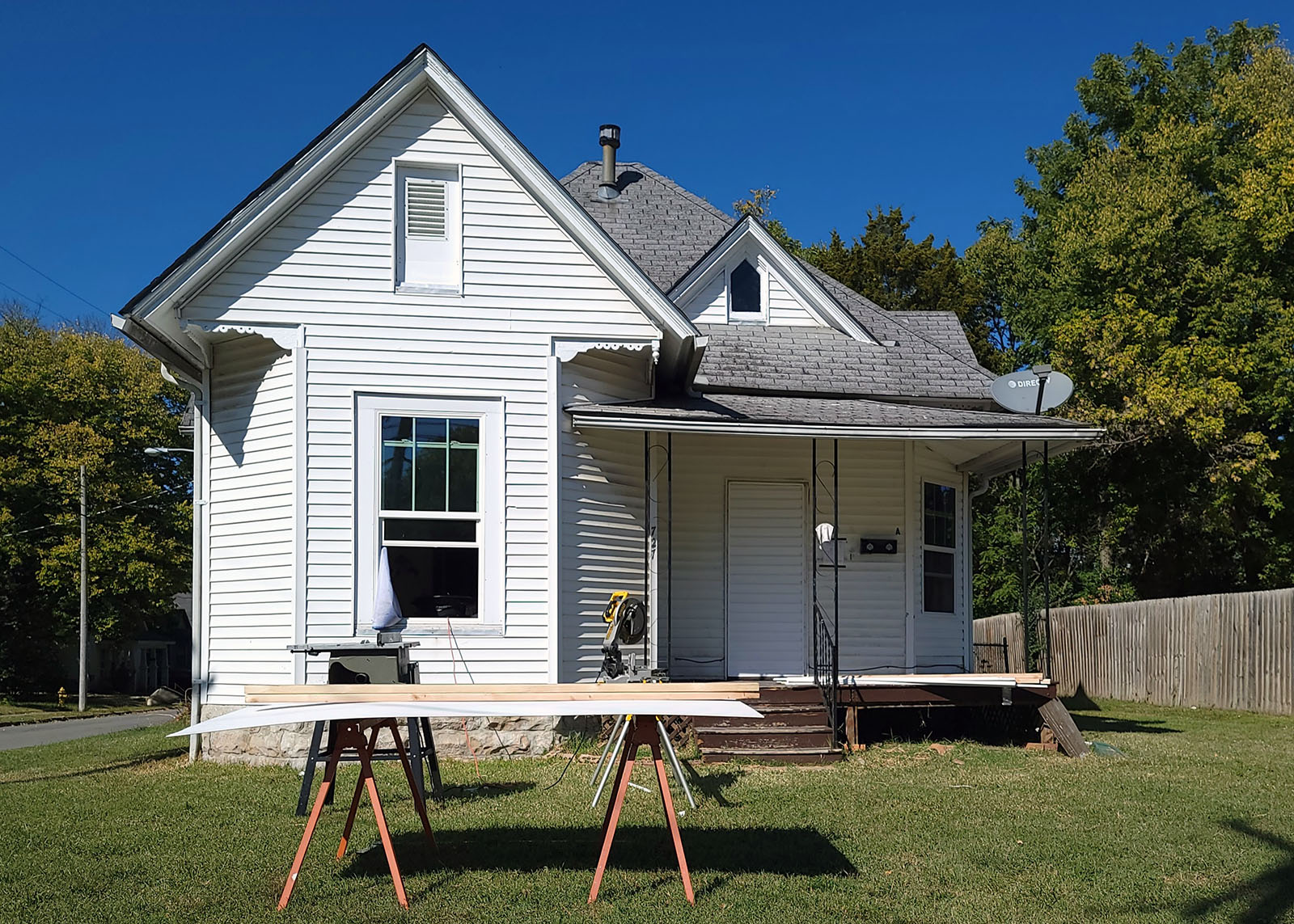
The tax abatements are not just for land on Grant Avenue. The Grant Avenue Corridor Plan is for properties immediately east and west of Grant Avenue, while the Grant Avenue Parkway Development Area extends farther east and west and includes other north-south streets, including parts of Campbell Avenue and Douglas Avenue.
The proposed redevelopment area encompasses an area that is generally bounded by Olive Street to the north, Catalpa Street to the South, Campbell Avenue to the east and Douglas Avenue to the west.
The Grant Avenue Parkway (GAP) plan is written with a focus on residential rehab and redevelopment. Mixed-use development (residential over commercial uses) is focused at key intersections. The GAP Plan also makes recommendations regarding existing and potential commercial uses.
The redevelopment plan has a list of 21 different goals, ranging as broadly as to improve quality of life for people who live in the project area to specifics about affordable rent, mixed-use land development and financial assistance for new businesses, among others.
The plan is written to be carried out in phases over a three-year span.
Nuts and bolts of blight
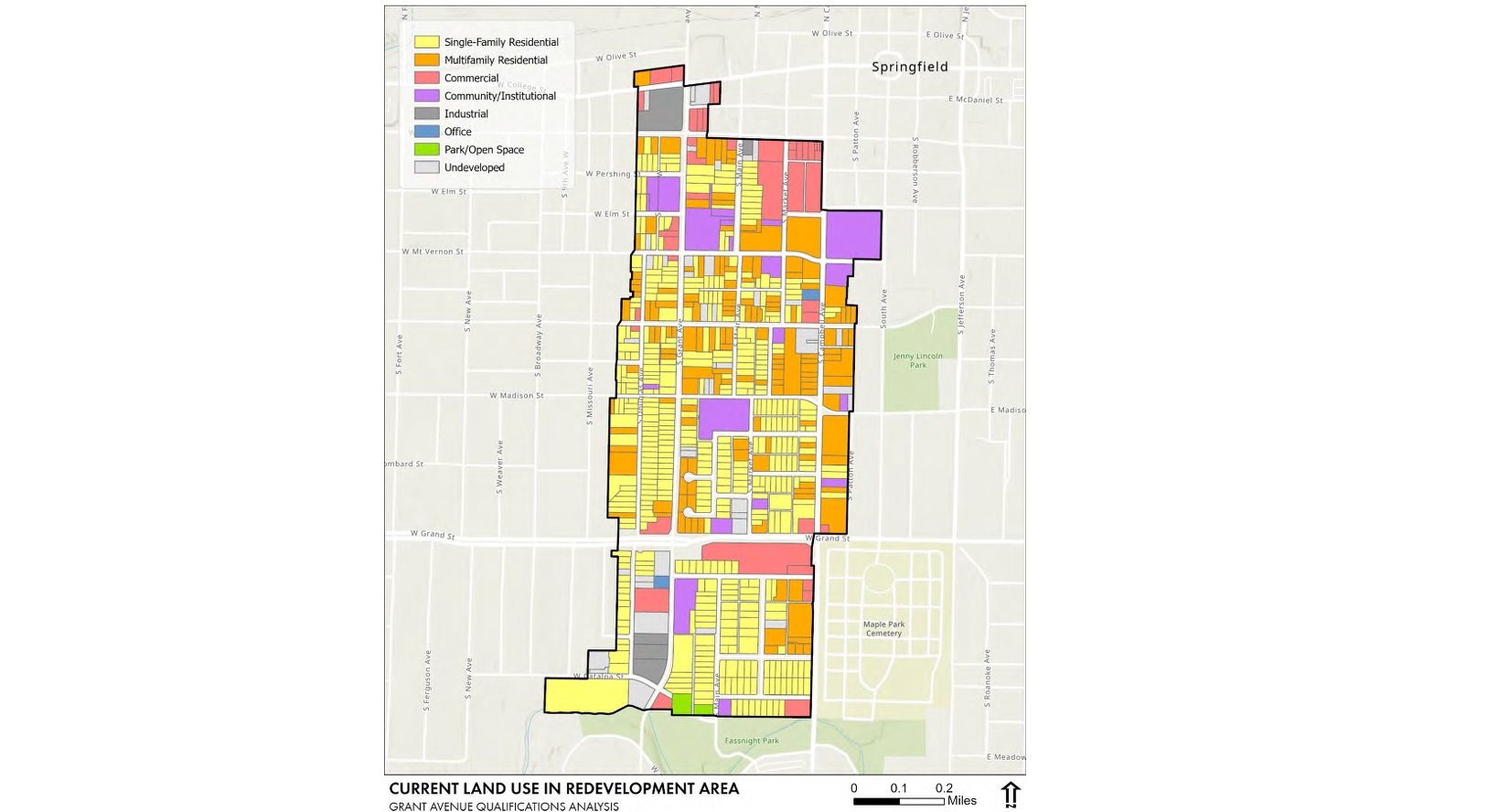
The plan relies on the use of state laws governing land redevelopment. Missouri’s urban redevelopment corporations law — known as Chapter 353 — allows cities and counties to designate areas as blighted, or economically underutilized or run down, and approve redevelopment projects in these areas with certain economic incentives. The plan also uses the Land Clearance for Redevelopment Authority Law, or LCRA, which allows cities to leverage public-private partnerships in acquiring and developing unsightly or unsanitary land.
“Certain areas of the Redevelopment Area were in far worse shape than others. Evidence of long-term disinvestment was often observed and concentrated west of Grant Avenue,” part of the PGAV consultants' findings read. “Insanitary conditions are often evidenced by litter, illegal dumping, conditions that attract or contribute to vermin, or a combination of such conditions. Unsafe conditions are evidenced by a lack of proper public infrastructure adequate for ensuring the public's safety and are contributed to by the deterioration of site improvements.”
There are 24 vacant homes in the development area. The consultants found about 250 parcels of land, or 36 percent of the property shows, “evidence of deterioration.”
“Approximately 46 properties within the redevelopment area exhibited signs of unsanitary or unsafe conditions. The conditions included vacant structures, public dumping, excessive litter, farm animals (chickens and ducks) in streets, and areas with overgrown vegetation that act as habitats for vermin,” the PGAV report reads.
Springfield Communications Coordinator Kristen Milam summarized the report findings, and why city staffers want private property owners to apply for the tax abatement incentives.
“This project is happening because of an over $20 million grant that we received from the federal government in order to create a more walkable pedestrian-friendly corridor through town, but part of that grant is to encourage redevelopment, reinvestment, so those are the next two goals that we have with this project,” Milam said.
